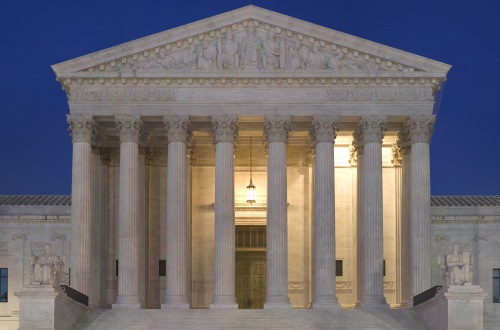Race Matters Everywhere Else in America - Why Shouldn’t It Matter in College Admissions?


Today, the Supreme Court will hear the so-called affirmative action case, Fisher v. University of Texas. The Court will decide whether or not the university’s use of race, as one of many factors in its admissions process, is constitutional. However, in order to even address the complex issue of race in admissions and the Equal Protection clause claims raised by the plaintiff, we have to acknowledge and to some extent, take part in the nonsensical, magical thinking that underlies the notion that race neutrality is somehow achieved by the discontinued use of race in admissions.
This magical thinking is summed up by those opposed to affirmative action and supported by Chief Justice Roberts’ statement in a 2007 decision (Parents Involved) that the “way to stop discrimination on the basis of race is to stop discriminating on the basis of race.” But with this country’s history and its current racial inequities, ignoring race and racism is not a race-neutral act. Simply put, ignoring racism harms people of color. Ending affirmative action will not end discrimination, it will entrench the racial inequality that stubbornly persists in our country.
We strive for a race neutral world, but right now we live in one that is persistently segregated. Racial disparities persist in the criminal justice system, in the delivery of health care and in income levels. Our country is still one where we can identify the racial make-up of most schools, neighborhoods and board rooms. And still, more than fifty years after the Court’s landmark decision in Brown v. Board of Education, one-third of black students attend schools with a 90% black population and those schools have fewer funds than those that are predominantly white. These disparities will only change if we have diverse leaders in the future to enact policies to change them.
The University of Texas and other public universities seek to enroll a diverse student body so that it can cultivate diverse leaders for its state and our nation. Without continued emphasis on diversity, the public universities of this country run the risk of becoming closed to many black and Latino students. There is no doubt that this will occur because it has already happened. When the University of Texas discontinued the use of race in its admissions in 1997, the percentage of black and Latino students fell dramatically. We see the consequences since the University of California system discontinued its use of race in admissions: Black and Latino students are now dramatically underrepresented in the system when compared with their total population throughout the state.
The critical question is whether we, as a society, want to permit that. Public universities should be a stepping stone for all members of society, not just some. The case being heard today will impact universities throughout the country. Let’s hope that the Court will consider this case through the lens of the country that we are, and not the country that we want to be. If that is done, Texas and other schools will be permitted to use race as one factor, among many, in the admissions process as we strive to achieve the still-elusive goal of racial equality.
The ACLU filed a friend of the court brief supporting Texas’ use of race in its admissions process. Read it here.
Learn more about affirmative action: Sign up for breaking news alerts, follow us on Twitter, and like us on Facebook.

